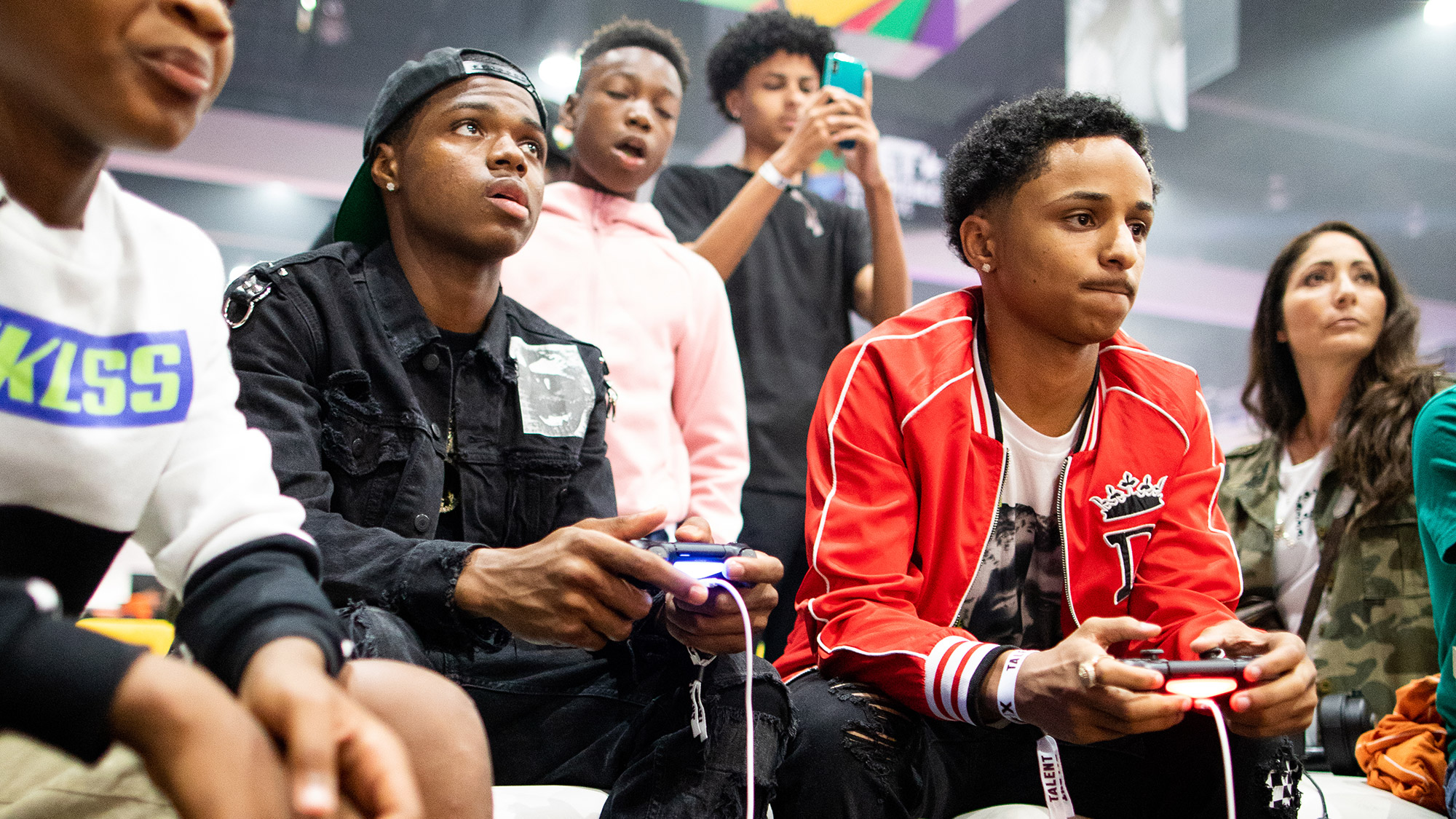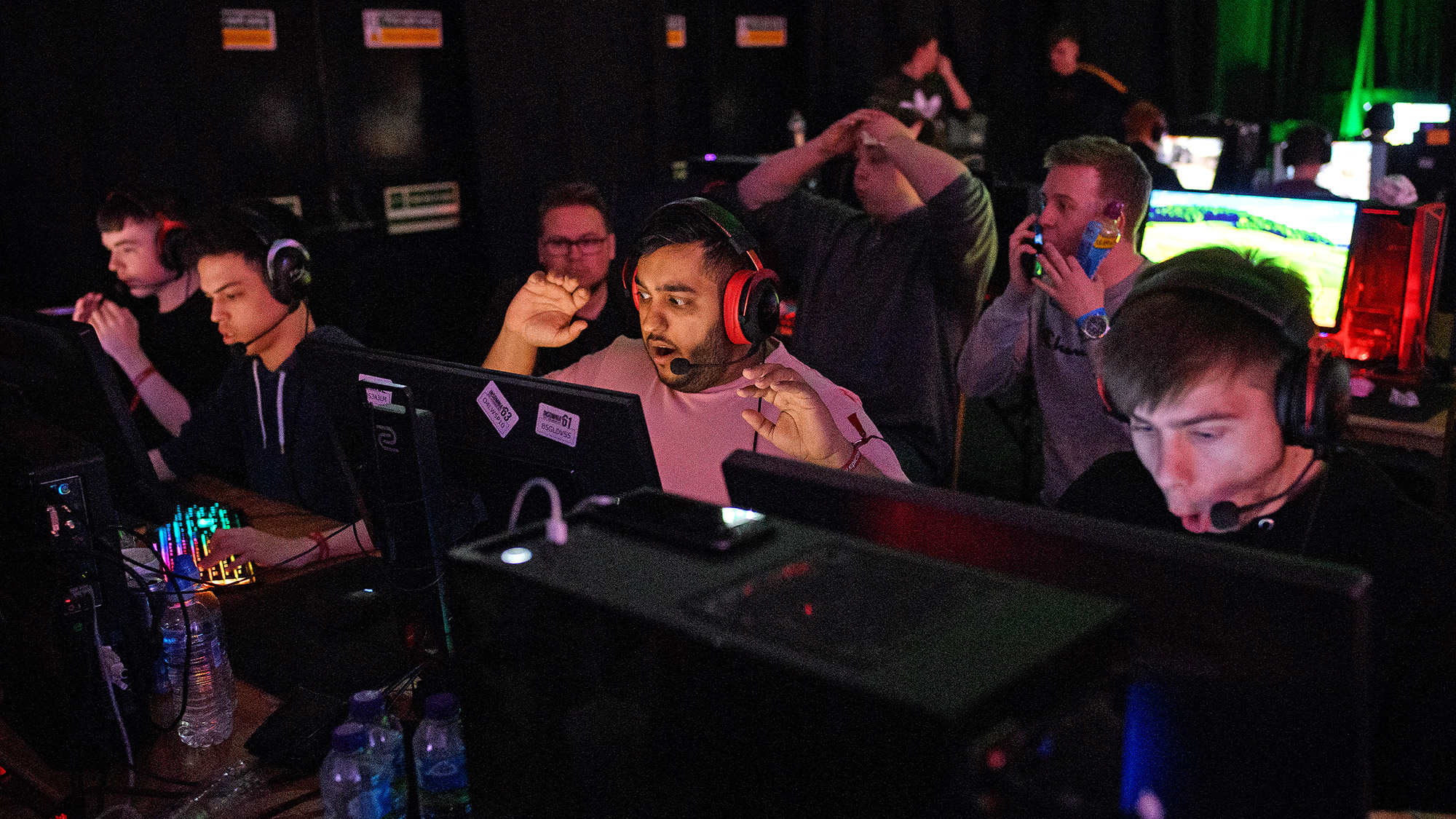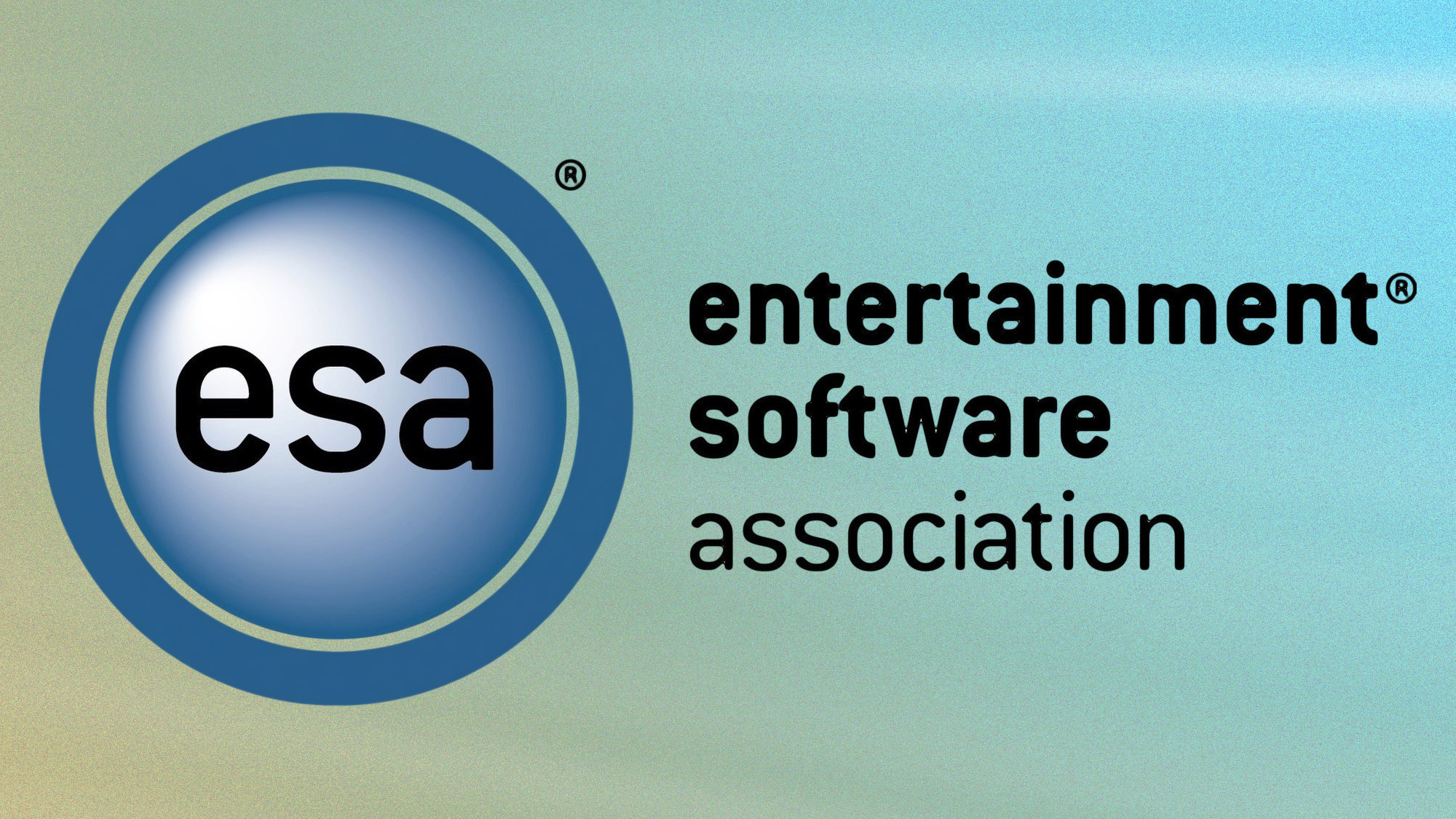ESA President: Gaming ‘should be celebrated’
Gaming ‘really captures the imagination of everyone’

Sign up to receive The Snapshot, a free special dispatch from Laptop Mag, in your inbox.
You are now subscribed
Your newsletter sign-up was successful
I love games. I’ve had a controller in my hand since the age of 5 when I played Pong on my cousin’s Atari 2600. The obsession really took home once I got my own Nintendo Entertainment System and got my first real introduction to Mario, Luigi and the illusive princess. Fast forward to the present and there’s never been a better time to be a gamer. We’re on the cusp of another console cycle, PC gaming is thriving and virtual and augmented reality is starting to penetrate mainstream markets.
To celebrate the strides the industry has made and just because it’s fun, the Entertainment Software Association recently kicked off the Game Generation. It’s a nationwide campaign designed to celebrate the positive impact of video games, including educational purposes and community building. All of the positive gaming news can be found in an online hub where you can access a number of interesting gaming stats as well as share your own story of how gaming has affected your life.
Laptop Mag recently sat down with ESA president and CEO Stanley Pierre-Lewis, to discuss the new campaign and other happenings in the gaming world. A gamer since his younger days and now parent to a 13-year-old has shaped his passion for the industry, and not just console games.
LTP: Tell us about the Game Generation campaign.
SPL: It's built on the concept that video games play such a critical role in our lives and in society, but we never take time to celebrate them in a public way. And here's what I mean by that. Today, 164 million American adults play video games that’s 65% of the population, which means all together, there are more people who play video games than those who watch football, baseball, basketball, soccer, and hockey combined in the United States. That's impressive.
And it's an industry that really captures the imagination of everyone, and includes everyone because there's a game for everyone in every sector on every platform. But whenever blame is misplaced on video games, there's nowhere to go. We saw a great example organically occur this past summer where video games were being blamed for yet another horrific crisis and tragedy and the trending hashtag on Twitter was video games are not to blame.
And so how do you create a platform where everyone can speak out and speak out in the ways that they feel most comfortable? This campaign is about celebrating games and giving people a sense that we should empower ourselves about games, and then working through what video games mean in society.
Sign up to receive The Snapshot, a free special dispatch from Laptop Mag, in your inbox.

LTP: Why do you think this campaign is necessary?
SPL: We want to make sure that we're celebrating it, highlighting it, and allowing and engaging and empowering people to share their stories because that's how you change the narrative about what video games are. You know, we're going to take the Amtrak home this afternoon. And if I pull out my iPad and binge watch some series, no one will think anything of it, but if I pull up my [Nintendo] Switch, people start to wonder what's going on.
[Gaming] should be celebrated because it's something that's actually bringing people together and bringing people joy and making people smarter and. And we all know that in the community. The question is, how do you get that within mainstream America where it's happening right now? Three quarters of households have video games in their homes. It shouldn't be an aberration and yet we find ourselves every time there's some blame assigned or scapegoating our industry, having to go back to the beginning.
LTP: Where is some of the biggest growth in the industry?
SPL: We're seeing innovation and inspiration through video games and what I mean by that is more and more, gamification is becoming a term of art where everything is gamified. But within education, you're seeing video game technology used in schools to help kids learn faster, as well as to learn more about computational skills absorb it better.
We've seen this in the studies we've done, but we've also seen it in studies by the U.S. Department of Education, by major leading universities that there's a certain stickiness that happens when you engage the mind in a special way. One example is Microsoft has an education edition of its Minecraft and over 35 million students in the U.S. play it.
You're also seeing it used in the medical field. Surgeons are now learning more about the body and acquiring surgical skills without cutting into actual human bodies through not only AR technology but VR technology. You're seeing stroke victims get rehabilitation through video game play, and what medical providers are finding is that the fun in the game is keeping people more active in doing their physical therapy, and that's across all populations, but particularly the older populations.
And then you're seeing it in the workplace. Right now when you start at Walmart, your onboarding includes a VR component to the stores. So, so you're seeing things gamified that's all through the excitement of the video game sector because a lot of innovations come from the video game industry. It's dynamic, it's diverse and it's digital.

LTP: Politically, the ESA is a bipartisan organization, but you’re often the first line of defense when gaming inevitably gets thrown into the political crossfire.
SPL: What we try to stress is the importance of [the industry]. We also try to demystify our industry to them. So, you know, we will reach out whenever we hear [negative] things to explain what's going on. So whether it's the White House or a member of the Senate or the House or in the states, we ensure that we're ahead of things happening to ensure people understand what impact we have.
We reach out to remind them of the importance of the video game industry has had in building our culture in pushing for innovation and on its economic impact. So, one of the things we've highlighted for a lot of different audiences including policymakers, is that games are made everywhere. So just thinking about the United States, there are the majors that everyone knows, the triple A titles and the smaller ones that pop up, but there are actually more than 2,000 video game companies across United States, sometimes as little as four or five people making games that are really dynamic and grow into things.
One of the things that's always startling to politicians is that 84% of congressional districts have a video game company in the United States. So we cover a lot here, abroad. The other thing you're seeing is because technology, technological barriers are going down, the ability to use technology to make games, and to do them at a high level is expanding everywhere.

LTP: How do you relate to video games as a parent?
SPL: I'm finding as a parent, the statistic that we learned in some of this research is that 73% of parents think video games help in their children's educational development. Because again, it encourages learning and encourages participation, makes them interested in what's under the hood. And again, that finding is shared by other organizations and groups that are looking at how video games positively impact the developmental mind flow.

LTP: What advice do you have for parents thinking about getting their kids their first gaming PC or console?
SPL: Typically we avoid sticking to hard ages – all children are different and we firmly believe that a parent has the best idea of when their kids are ready for a new game or piece of tech.
That said, we would always recommend that parents look into setting parental controls before they give their kids a new device. This may also include having a conversation about setting some concrete “House Rules” around screen time, which games are age-appropriate, with whom their kids can play online and how much money (if any) can be spent on in-game purchases.
We also think parents should stress the same common sense rules they teach their kids in the real world to practice online — basic values about respecting others and protecting your privacy. Most importantly, keep those parent-child lines of communication open when it comes to what they’re experiencing online.

Sherri L. Smith has been cranking out product reviews for Laptopmag.com since 2011. In that time, she's reviewed more than her share of laptops, tablets, smartphones and everything in between. The resident gamer and audio junkie, Sherri was previously a managing editor for Black Web 2.0 and contributed to BET.Com and Popgadget.
